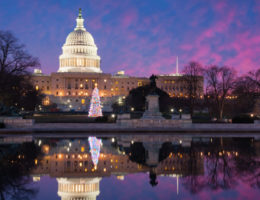In this article published in The Review of Securities & Commodities Regulation, Thomas Firestone and Terence Gilroy provide an overview of the elements of criminal money laundering under US law and consider when a person is deemed to have knowledge that a transaction involves the proceeds of crime. They then suggest criteria to apply in determining whether assets remain tainted as the connection with criminal activity becomes more attenuated.
On November 10, 2021, the US Departments of State, Treasury, and Commerce issued a joint advisory (the “Advisory”) cautioning US companies operating in or considering operations in Cambodia to be conscious of dealings with entities and in sectors potentially involved in human rights abuses, criminal activities, and corrupt business practices. We describe the Advisory in additional detail below.
Baker McKenzie’s international trade compliance lawyers from around the world discussed the major global legislative, judicial and administrative activities and trends in export controls, trade sanctions, customs compliance, and import requirements in nine 75 minute sessions which took place from 16 to 18 November 2021.
Financial crime remains at the top of the regulatory agenda across the globe. As responses to the pandemic stabilise, and following some high-profile global incidents, regulators face renewed pressure to manage financial crime more effectively through robust supervision and enforcement. In the October 2021 edition of the City Library’s Compliance Officer Bulletin, our business crime, regulatory and cybersecurity lawyers explore the latest developments in anti-money laundering and financial crime in a series of articles
We are pleased to invite you to our annual virtual Global Year-End Review of Import/Export/Trade Compliance Developments. Our international trade compliance lawyers from around the world will review the major global legislative, judicial and administrative activities and trends in export controls, trade sanctions, customs compliance, and import requirements which will be 16-18 November 2021.
On September 24, 2021, the US Department of Treasury’s Office of Foreign Assets Control (“OFAC”) issued two General Licenses—(i) General License 14, “Authorizing Humanitarian Activities in Afghanistan” (“GL 14”), and (ii) General License 15, “Transactions Related to the Exportation or Reexportation of Agricultural Commodities, Medicine, Medical Devices, Replacement Parts and Components, or Software Updates in Afghanistan” (“GL 15”)—to “support the continued flow of humanitarian assistance to the people of Afghanistan and other activities that support basic human needs in Afghanistan.”
The Virtual Global Trade Conference is a virtual offering for all our clients and friends worldwide. Baker McKenzie’s international trade compliance lawyers from around the world discussed the major developments impacting international trade, in nine one-hour sessions which took place from 13 to 15 July 2021.
Welcome to our Virtual Global Trade Conference, a virtual offering for all our clients and friends worldwide. Baker McKenzie’s international trade compliance lawyers from around the world discussed the major developments impacting international trade. The sessions include trade policy, exports, sanctions, customs, China trade developments and trade developments.
We are pleased to invite you to our Virtual Global Trade Conference. In lieu of our annual conference in Bellevue, WA, we are excited to again provide a virtual offering available to all our clients and friends worldwide! The conference will be comprised of nine one-hour sessions over the course of three days.
On June 9, 2021, the Biden Administration issued Executive Order 14034, “Protecting Americans’ Sensitive Data from Foreign Adversaries” (“EO 14034”). EO 14034 revokes three executive orders issued by the Trump Administration that effectively banned certain Chinese connected software applications (“apps”) from operating in the United States. Although EO 14034 revokes these legal authorities and calls for their implementing rules to be rescinded, EO 14034 signals that the Biden Administration will continue to analyze the national security risks presented by apps developed by persons subject to the jurisdiction or control of “foreign adversaries” and suggests that additional restrictions may be issued in the future.









